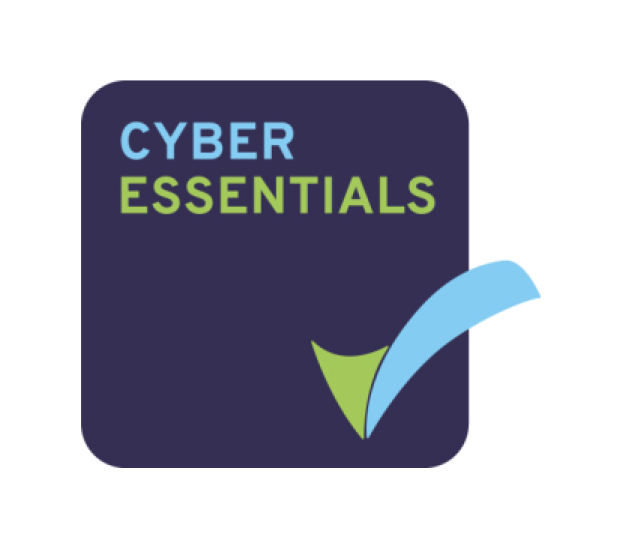Training & Certifications
With the NetSuite platform continuing to evolve, the need for qualified talent to help deliver projects continues at pace. That surely makes training and certification a key issue for individuals and organizations across the NetSuite community, right?

For employers, training and certification isn’t just a way to keep teams engaged and support development, it’s essential to increasing the skillset within the organization and verifying talent. For individuals, they add value as you progress throughout your career and look towards your next opportunity.
So, how does the community really feel about training and certification?
What percentage of candidates hold a NetSuite certification?
The number of certified professionals has increased from 43% in our last survey to 46% this time.
50%
19%
NetSuite certifications held by candidates
Given that the NetSuite SuiteFoundation certification is a prerequisite for all others, this certification was not included in the analysis for this section. However, it is worth noting that 19% of respondents held only this certification.
| NetSuite Administrator Certification | 55% |
| NetSuite ERP Consultant Certification | 34% |
| NetSuite Financial User Certification | 29% |
| NetSuite SuiteAnalytics User Certification | 26% |
| NetSuite Application Developer, NetSuite Web Services Developer certifications, NetSuite SuiteCloud Developer Certification* | 8% |
| Retired NetSuite certifications | 3% |
Does holding a NetSuite certification make you a more valuable professional?
From our respondents, 88% of those with certifications believe that they make you a more valuable candidate.
Why do you believe that certifications make candidates more valuable to employers?
Reasons for considering that certifications add value to a candidate can be grouped into five main themes:
- Certification provides companies with the assurance that the person has met the minimum requirements needed to work with a specific area of NetSuite
- They enhance your credibility, with employers and customers
- They are desired by hiring managers and recruiters
- Certifications are useful for jobseekers with limited experience
- Undertaking a certification demonstrates an effort to continued learning and professional development
“It provides both employers and customers the re-assurance that my NetSuite knowledge and skills have been thoroughly vetted and approved by NetSuite.”
Functional Support, Canada
Why don't you believe that certifications make candidates more valuable to employers?
- Technical experience with NetSuite is more important
- NetSuite can be learnt through real-world experiences and projects
What are the top benefits professionals have gained since undertaking a certification?
| A way to verify my skills with NetSuite products | 52% |
| Added skills and value to my organization | 44% |
| Better career progression opportunities | 41% |
| Better marketability to employers/enhanced my professional profile | 40% |
| Recognition from my employer that my skills adhere to a professional standard | 36% |
How does gaining a certification impact on your salary?
Are employers contributing towards the cost of certifications?
Yes, they partially paid for my certifications
No, I paid for my own certifications
Yes, they paid for my certifications in full
Factors that motivate professionals to get certified
| Employer funding for certifications | 57% |
| The incentive of learning new skills | 41% |
| The promise of a pay increase after gaining certification | 39% |
| Paid time off to attend training or study | 36% |
| The incentive of a promotion or a new role after gaining certification | 30% |
| Discounted certifications | 25% |
| If it was a requirement of my role | 22% |
| Other | 2% |
What are the barriers to achieving a certification?
Interestingly, 36% of professionals have begun studying for a certification but stopped before taking the exam. Reasons given for not sitting the exam include:
| Lack of time to study because of a high workload | 55% |
| Lack of motivation | 29% |
| I struggled with self-directed learning | 29% |
| Lack of time to study because of personal commitments | 29% |
| Procrastination | 13% |
| I was worried I wouldn't pass the exam | 13% |
| I found the course material too complex/difficult to understand | 11% |
| Other | 3% |

What training and development would NetSuite professionals like?
| Artificial Intelligence (AI) and machine learning training | 48% |
| Training and certifications in IT project management methodologies such as PRINCE2 or PMP, as well as Agile/Scrum methodologies | 44% |
| Leadership and management training | 43% |
| Data-driven decision making | 30% |
| Strategic planning and goal-setting | 28% |
| Change management strategies and techniques | 28% |
| Cybersecurity training and certifications | 26% |
| Risk management and contingency planning | 23% |
| Negotiation and conflict resolution techniques | 21% |
| Time management techniques | 17% |
| Training to improve emotional intelligence | 17% |
| Training in communication and interpersonal skills, including public speaking | 15% |
| Diversity, equity, and inclusion training | 13% |
| Customer service skills | 9% |
| Other | 2% |
| Artificial Intelligence (AI) and machine learning training | 48% |
| Training and certifications in IT project management methodologies such as PRINCE2 or PMP, as well as Agile/Scrum methodologies | 44% |
| Leadership and management training | 43% |
| Data-driven decision making | 30% |
| Strategic planning and goal-setting | 28% |
| Change management strategies and techniques | 28% |
| Cybersecurity training and certifications | 26% |
| Risk management and contingency planning | 23% |
| Negotiation and conflict resolution techniques | 21% |
| Time management techniques | 17% |
| Training to improve emotional intelligence | 17% |
| Training in communication and interpersonal skills, including public speaking | 15% |
| Diversity, equity, and inclusion training | 13% |
| Customer service skills | 9% |
| Other | 2% |
Conclusion
Although 70% of respondents reported a pay increase after becoming certified, encouragingly it doesn’t appear to be the main motivator for undergoing study. Instead, skills development and career progression figure more highly, which explains why 88% of employers have paid for employee certs one way or another.
Certifications add value to an organization—whether that’s for partners wanting to remain aligned with the vendor, to businesses that wish to have a broader range of skills in-house, or simply wanting to ensure staff remain motivated and focused. No matter your place in the ecosystem, the desire to be certified or get certified is there from employer and employee alike.
Why not explore even more of our content:
Our key findings report contains highlights from this year’s Careers and Hiring Guide, plus our salary tables allow you to compare your salary or benchmark your teams’ salaries no matter their role in the NetSuite ecosystem.







